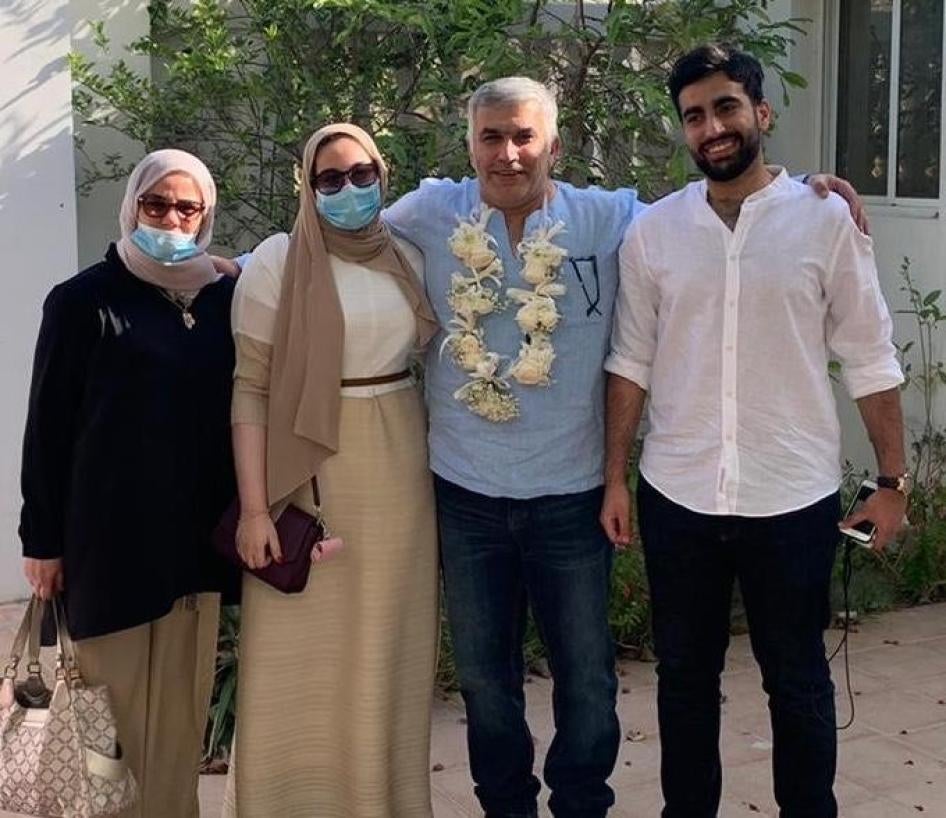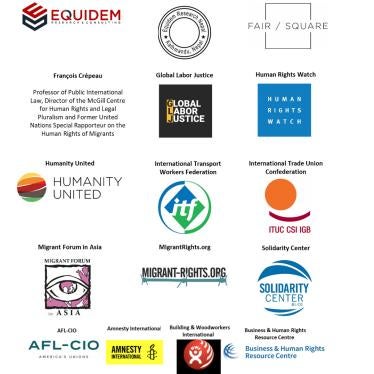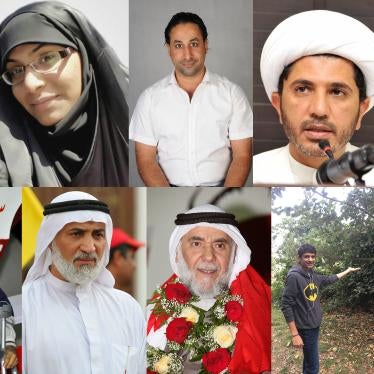(Beirut) – The release from prison of the prominent Bahraini human rights defender Nabeel Rajab on June 9, 2020 is a long-overdue but positive development, Human Rights Watch said today.
The authorities detained him in June 2016 and a court later sentenced him to five years in prison for peacefully expressing his opinions online. The authorities should drop the charges against Rajab and quash his unjust conviction.
“We are overjoyed to see Nabeel Rajab reunited with his family, but he is still not free to move about or speak out on human rights abuses,” said Joe Stork, deputy Middle East director at Human Rights Watch. “To be clear, the Bahraini government never should have arrested Nabeel Rajab in the first place, and it should immediately vacate his unjust charges and conviction.”
Rajab was released from Jaw Prison under a 2017 law that allows courts to impose “alternative” sentences after a detainee serves half of their sentence, which Rajab completed on November 1, 2019. In September, the authorities denied Rajab’s request to serve his remaining prison term at home. Rajab is the president of the Bahrain Center for Human Rights and a co-founder of the Gulf Center for Human Rights. He is on the Human Rights Watch Middle East advisory committee.
Rajab’s lawyer, Mohammad al-Jishi, told Human Rights Watch that the alternative sentence Rajab will be required to serve is not yet clear. Under the alternative sanctions law, a judge may order Rajab to remain in his home for the remaining three years of his sentence, perform community service, refrain from communicating with particular persons, submit to electronic surveillance, attend rehabilitation and training programs, and/or remedy the damage that resulted from the crime.
A court sentenced Rajab in February 2018 to five years for “spreading false news” after he criticized on social media Bahrain’s participation in Saudi Arabia-led military operations in Yemen and for “insulting” the Interior Ministry by speaking out against torture in Bahrain’s main prison. Rajab also served a two-year prison sentence on other charges related to peaceful expression.
On March 17, the Bahraini government completed the release of 1,486 prisoners for “humanitarian reasons, in the backdrop of current circumstances,” a likely reference to the Covid-19 pandemic. The release did not include Rajab or other prominent dissidents, some of whom suffer from underlying health conditions, putting them at high risk of serious illness if they contract Covid-19.
Maryam al-Khawaja, daughter of imprisoned human rights defender Abdulhadi al-Khawaja, told Human Rights Watch that there are confirmed Covid-19 cases in the Jaw Prison. Authorities have not confirmed this. It is unclear if Rajab’s release was motivated by health concerns related to the pandemic.
Bahrain’s prisons are rife with hygiene and sanitation problems. In 2016, a government watchdog found that some buildings in the Jaw Prison suffered from “bad hygiene,” “insect infestation,” and “broken toilets.” Human Rights Watch found that prisoners were routinely denied adequate medical care.
One prisoner released in March told Human Rights Watch that prison authorities did not take any additional precautions to prevent the spread of Covid-19, including sanitizing the prison or providing detainees with cleaning supplies and protective gear.
Authorities held Rajab during some periods of his detention in conditions that appear to amount to ill-treatment. He was in solitary confinement for more than two weeks following his arrest in June 2016. His family said that for a period during his detention, prison authorities confined Rajab to a cramped, dirty, and insect-infested cell at Jaw Prison for 23 hours a day. During his detention, Rajab’s health deteriorated. He has had several surgical procedures, suffered heart palpitations that led to hospitalization, and developed other medical conditions, including a low white blood cell count, his family said.
Bahrain should undertake a prompt, impartial, and independent investigation into his allegations of ill-treatment in detention, Human Rights Watch said.
Dozens of human rights defenders, political activists, opposition leaders, and journalists remain unjustly imprisoned.
“Nabeel’s release is a positive first step, but authorities should now release other prominent activists and opposition figures who are still unjustly behind bars for peacefully expressing their views, including Abdulhadi al-Khawaja, Hassan Mushaima, and Abduljalil al-Singace,” Stork said.
|
News Release
Bahrain: Prominent Activist Nabeel Rajab Freed from Prison
Quash Unjust Charges and Sentence
Your tax deductible gift can help stop human rights violations and save lives around the world.
Region / Country
Most Viewed
-
June 3, 2025
“They’re Ruining People’s Lives”

-
January 25, 2024
“We’re Dying Here”

-
November 25, 2019
A Dirty Investment

-
April 27, 2021
A Threshold Crossed

-
November 19, 2012
Losing Humanity





